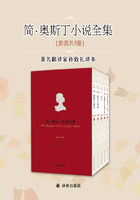RELIGION IN IRELAND DURING THE FIFTEENTH CENTURY/Annals of the Four Masters/. /State Papers/, 11 vols., 1832-5.
/Papal Letters/, 9 vols. /De Annatis Hiberniae/, vol. i., Ulster, 1912; vol. ii., Leinster (app. ii. /Archivium Hibernicum/, vol.
ii.). Brady, /The Episcopal Succession in England, Scotland and Ireland (1400-1873)/, 3 vols., 1876. Theiner, /Vetera Monumenta Scotorum (1216-1547)/, 1864. Ware's /Works/, 2 vols., 1729.
Wilkins, /Concilia Magnae Britanniae et Hiberniae/, iii. vol., 1737. /Reports of the Deputy Keeper of Public Records, Ireland/.
/Reports of the Royal Commission on Historical Manuscripts/. De Burgo, /Hibernia Dominicana/, 1762. Gilbert, /The Viceroys of Ireland/, 1865. Id., /Facsimiles of National Manuscripts of Ireland/, 4 vols., 1875. Lawlor, /A Calendar of the Register of Archbishop Sweetman/, 1911. Bellesheim, /Geschichte der Katholischen Kirche in Ireland/, 3 Bde, 1890. Malone, /Church History of Ireland from the Anglo-Norman Invasion to the Reformation/, 2 vols., 3rd edition, 1880. Brenan, /An Ecclesiastical History of Ireland/, 1864. Gogarty, /The Dawn of the Reformation in Ireland (I. T. Q.)/, 1913, 1914. Green, /The Making of Ireland and its Undoing (1200-1600)/, 1908. Bagwell, /Ireland under the Tudors/, 1885. Wilson, /The Beginnings of Modern Ireland/, 1912.
From the beginning of the fourteenth century English power in Ireland was on the decline. The Irish princes, driven to desperation by the exactions and cruelties of the officials, adopted generally a more hostile attitude, while the great Norman nobles, who had obtained grants of land in various parts of Ireland, began to intermarry with the Irish, adopted their language, their laws, their dress, and their customs, and for all practical purposes renounced their allegiance to the sovereign of England.
Owing to the civil war that raged in England during the latter portion of the fifteenth century the English colonists were left entirely without support, and being divided among themselves, the Geraldines favouring the House of York, and the Ormonds, the House of Lancaster, they were almost powerless to resist the encroachments of the native princes. Nor did the accession of Henry VII. lead to a combined effort for the restoration of English authority. The welcome given by so many of the Anglo-Irish, both laymen and clerics, to the two pretenders, Simnel and Warbeck, and the efforts the king was obliged to make to defend his throne against these claimants, made it impossible for him to undertake the conquest of the country. As a result, the sphere of English influence in Ireland, or the Pale, as it was called, became gradually more restricted. The frantic efforts made by the Parliament held at Drogheda (1494, Poynings' Parliament) to protect the English territory from invasion by the erection "of a double ditch six feet high" is the best evidence that the conquest of the country still awaited completion.[1] In the early years of the reign of Henry VIII.
the Pale embraced only portions of the present counties of Dublin, Louth, Meath and Kildare, or to be more accurate, it was bounded by a line drawn from Dundalk through Ardee, Kells, Kilcock, Clane, Naas, Kilcullen, Ballymore-Eustace, Rathcoole, Tallaght, and Dalkey. Within this limited area the inhabitants were not safe from invasion and spoliation unless they agreed to purchase their security by the payment of an annual tribute to the neighbouring Irish princes; and outside it, even in the cities held by Norman settlers and in the territories owned by Norman barons, the king's writ did not run.[2]
Recourse was had to legislative measures to preserve the English colonists from being merged completely into the native population.
According to the Statutes of Kilkenny (1367) the colonists were forbidden to intermarry with the Irish, to adopt their language, dress, or customs, or to hold any business relations with them, and what was worse, the line of division was to be recognised even within the sanctuary. No Irishman was to be admitted into cathedral or collegiate chapters or into any benefice situated in English territory, and religious houses were warned against admitting any Irish novices, although they were quite free to accept English subjects born in Ireland[3] (1367). This statute did not represent a change of policy in regard to Irish ecclesiastics. From the very beginning of the Norman attempt at colonisation the relations between the two bodies of ecclesiastics had been very strained. Thus, in the year 1217 Henry III. wrote to his Justiciary in Ireland calling his attention to the fact that the election of Irishmen to episcopal Sees had caused already considerable trouble, and that consequently, care should be taken in future that none but Englishmen should be elected or promoted to cathedral chapters. The Irish clerics objected strongly to such a policy of exclusion, and carried their remonstrances to Honorius III. who declared on two occasions (1220, 1224) that this iniquitous decree was null and void.[4] As the papal condemnations did not produce the desired effect, the archbishops, bishops, and chapters seem to have taken steps to protect themselves against aggression by ordaining that no Englishman should be admitted into the cathedral chapters, but Innocent IV., following the example of Honorius III., condemned this measure.[5]
Notwithstanding its solemn condemnation by the Holy See this policy of exclusion was carried out by both parties, and the line of division became more marked according as the English power began to decline.















